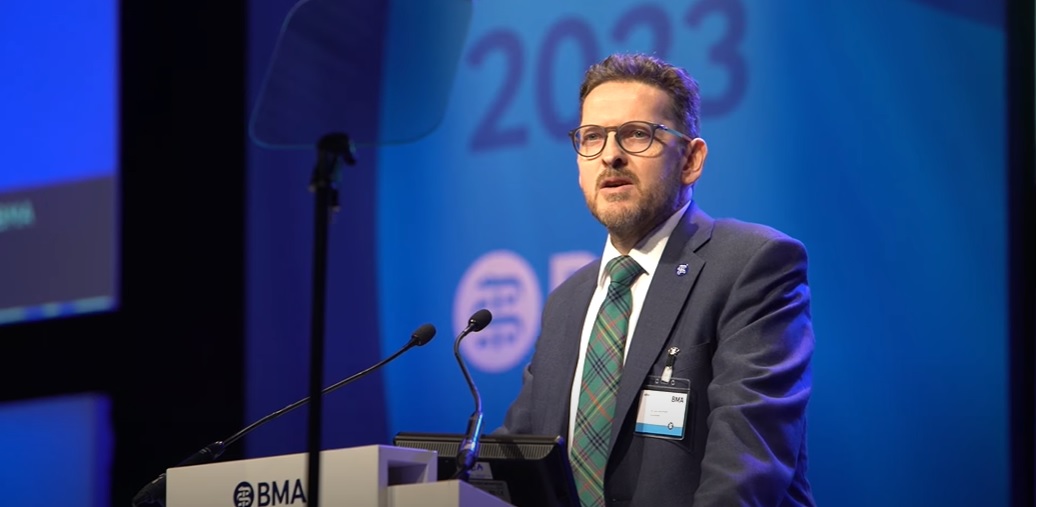One of the key issues for our members is concerns over the role of “medical associate professions” (MAPs) in Scotland’s NHS.
This group of staff includes Physician Associates (PAs), Anaesthesia Associates (AAs) and Surgical Care Practitioners (SCPs).
At a Scottish Council meeting last year, a motion was passed that required BMA Scotland to “immediately begin work on formalising a stance on PAs and AA”.
Of course, we have followed that direction and worked consistently on meeting this ask, including consulting with members here in Scotland, gathering evidence from a variety of sources and contributing to publications at a UK level.
With all that work complete, BMA Scotland is now able to publish a final paper and formalised stance on this issue. You can read it in full here:
First of all – I want to thank all our members who have contributed. You have helped shaped this paper and guided our findings.
The primary take-away from the paper is the very real patient safety concerns around the way these roles are currently being deployed in NHS Scotland.
There is no doubt that while these roles remain poorly defined, with the serious possibility of those who occupy them operating beyond their competence, there is a real risk to the quality and safety of care provided.
This ‘scope-creep’ fuels a dangerous blurring of lines between doctors and these roles – which are by definition less qualified – having had just two years of training. Let us be clear, only a doctor can and indeed should do the job required of a doctor.
These blurred lines, and confusion is not helped by terminology. The word ‘associate’ in this context is at best ambiguous. And the use of the term, ‘medical professional’ for MAPs, as has been found in recent communications by the GMC, does nothing to help this position.
It is therefore little surprise that there can often be confusion amongst patients and their families as to whether they have seen a doctor, or someone who is considerably less qualified and indeed whether that is appropriate for them. The consequences of this have been tragically illustrated by incidents that have occurred in England, where MAPs are being more widely used.
If you add in the impact knock-on reducing scarce training opportunities for doctors at the early stages of their career, who already see this limited by the demands placed on senior doctor’s time, then it is clear that the way MAPs are being deployed in our NHS simply isn’t working, and the consequences are impacting both doctors and patients.
Looking forward, while the BMA has considerable concerns about how MAPs are currently being deployed, we also believe that they could be part of the workforce plans for the wider healthcare system if significant changes and reassurances are made.
I also want to be clear, and as I hope we have been through our work on this – that the issues at stake are not with individual MAPs, but the wider context within which they are operating.
Perhaps most importantly I hope this paper helps find a positive way forward through the very clear recommendations set out. If adopted in full, I do believe we can move forward productively as a staff team across Scotland’s NHS. I won’t run through them all – they are explained in the paper – and I think it’s important they are seen as whole, rather than cherry picking any in particular.
But, I would emphasise that without this action, BMA Scotland urges the Scottish Government to halt all recruitment of new MAPs until there is clarity and material assurances around their scope of practice.
That remains our position and I hope something that fits with the Scottish Government’s own approach – which they have described as being evidenced based. While we lack that solid evidence of the impact of these roles, then any increase in MAPs in our NHS is surely neither effective or indeed safe practice.
As set out in paper, BMA Scotland has secured seats on the key planning groups in Scotland where the role of MAPs is being discussed – something which can only be a good thing. We’ll contribute positively, realistically and robustly in these forums. And concerned members and indeed patients and their families should rest assured that the issues we set out in our final position paper will be exactly those we take into these vital discussions.

